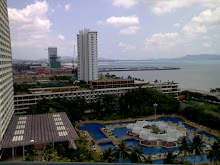There are hill tribes living in the border areas of northern Thailand for 200 years, but their origins date back nearly two thousand years in Tibet, where their nomadic lifestyle has led them to the region of Yunnan in southern China and from there with Myanmar (Burma), Laos and Thailand itself.
The hill tribes of northern Thailand, were traditionally nomadic people living from agriculture and slash and burn while keeping a few animals,like pigs, chickens and buffalos. When an area's natural resources were exhausted he would go.
The hill tribes have their own language, which have no written form, except that of the Yao people, and are distinct from strain to strain. Like most of the nomads, their culture is passed on through their religion, dress and cultural practices.
Unlike the Buddhists in Thailand, are followers of traditional animist, one of the earliest forms ofreligion in which everything in the real world has its counterpart in the spiritual world. Communication between the worlds is the activity of the shaman, who is also the village head, who can speak with the spirits and ask for their help to ensure the happiness and the people of illness and misfortune. Most of the missionary activity among the hill tribes of Thailand, and many have converted to Christianity, while maintaining aspects of their animist beliefs.All the tribes, the hill peoples to preserve the various aspects of their Chinese cultural heritage, including ancestor worship.
With the advent of the modern age, came the unfolding of a story that is familiar to us today. Their farming practices, and hunting in violation of the limited resources and the conservation of forest decline and destroyed the habitat of many species, including monkeys, which became extinct.
Many of the tribes took to the cultivation ofpoppy, and to stop this dependence, the King of Thailand, His Majesty the King Bhumiphol Adyuladej (Rama IX) was founded in 1950, the Royal Development Project for the hill tribes. This project is the cultivation of crops such as cabbage, corn, strawberries, coffee plants and fruit, and use of environmentally friendly methods of cultivation. The project has also set up schools and roads and brought electricity to help the tribal people to integrate intothe rest of Thailand.
Most of the hill tribes are officially stateless and do not have a birth certificate and therefore can not register as Thai nationals, but this situation is changing for the better. Without citizenship, they can not own their own field, may be fined at checkpoints as they are not able to produce citizenship papers can not obtain licenses of vehicles and motorcycles for vehicles purchased and stateless children may not sit for the exams.
This is atwist to their sad story that the hill tribes at risk are assimilated into mainstream culture, and dealing with the inevitable deterioration of consumerism. It may be that in another generation this unique and different cultures will be a matter of history.
Tourism is a vital part of the economy of the hill tribes, particularly the Paduang (long-neck Karen), whose young women are famous for the many brass rings that adorn her neck. Most of the hill tribesPeople are happy to show hospitality to visitors, and is the responsibility of visitors to show respect for their turn.
Visit : Nature Hill Italy Trips Guide

No comments:
Post a Comment